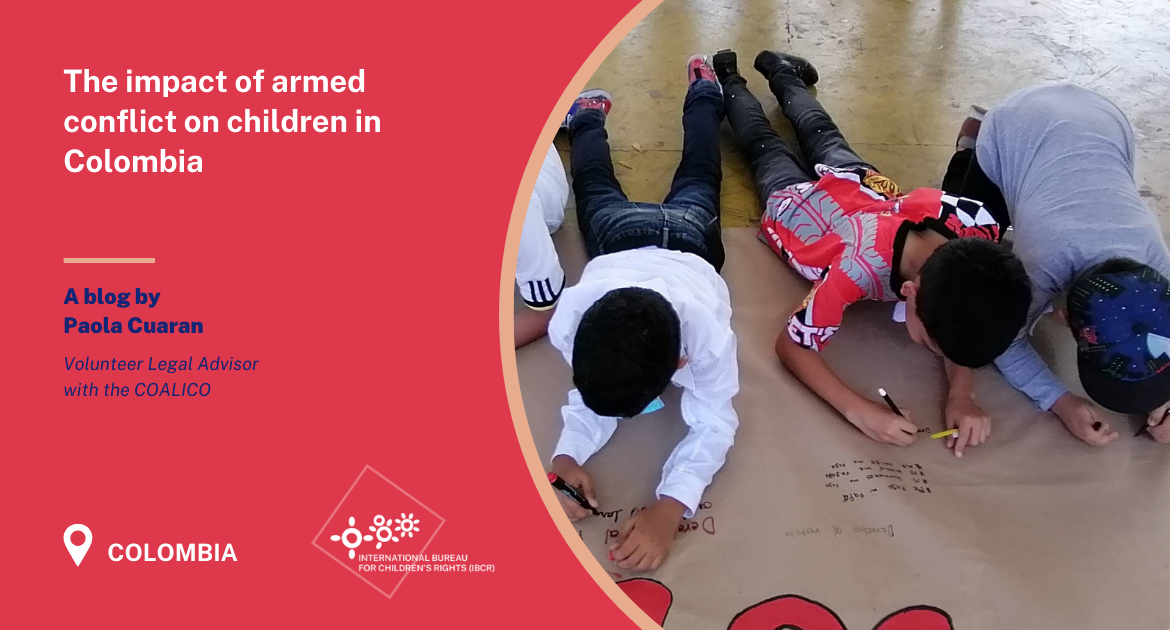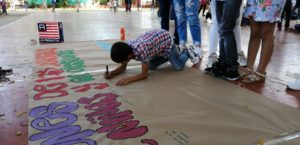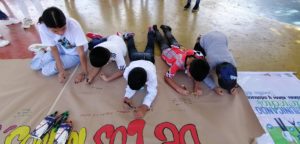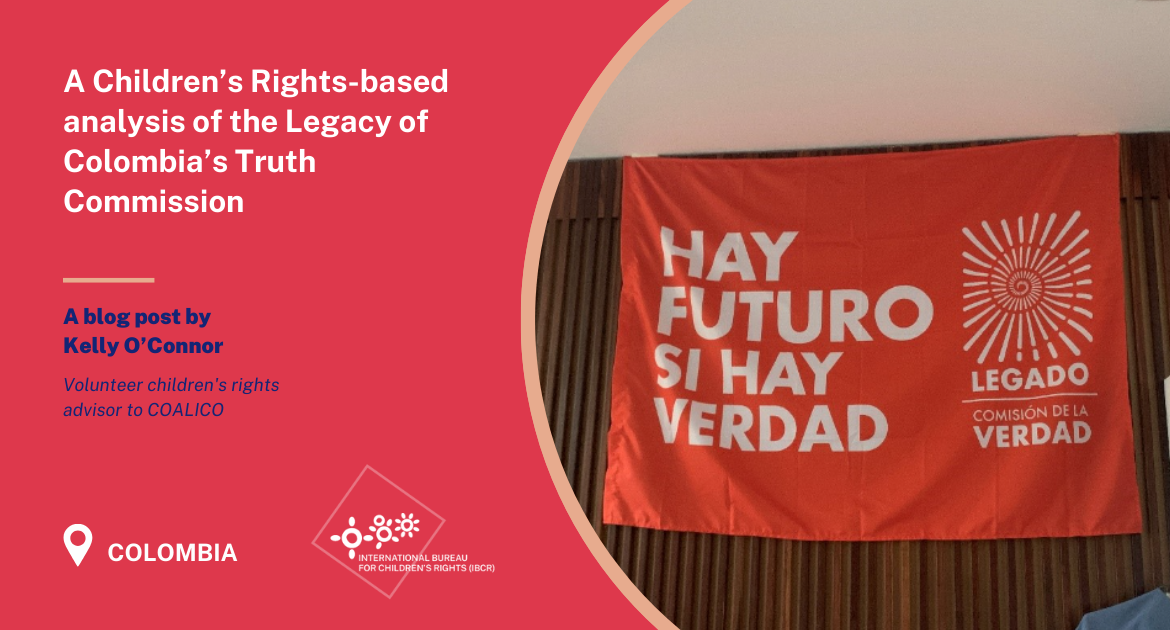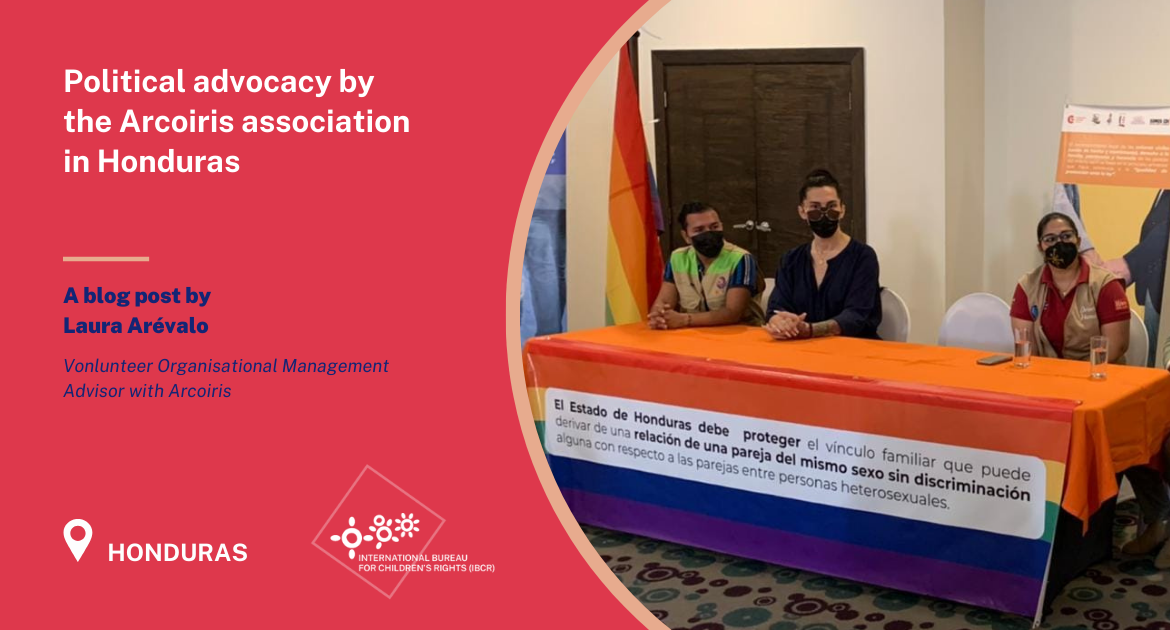*Translation may contain errors. See the original article in Spanish.
Article 38 of the Convention on the Rights of the Child, to which Colombia is a party, obliges states to take all necessary measures to ensure the protection and care of children affected by armed conflict.
Similarly, the Optional Protocol on the Involvement of Children in Armed Conflict expressly prohibits the involvement of children under the age of 18 in armed conflict. However, despite the existence of a wide range of international and national regulations on the protection of children in Colombia, the recruitment and use of minors is a common practice of the armed groups involved in the armed conflict inside the country.
Photos : Archives COALICO - Oscar Fernando Cobo
Children and adolescents as victims of war
The vulnerable situation in which many children find themselves in the context of the Colombian armed conflict is alarming. Many of them are affected by the attacks of armed groups against their population. These children may die or lose family members. In some cases, they are taken from their homes and forced into organised armed groups (post-demobilisation paramilitary armed groups, guerrillas or FARC-EP splinter groups) and participate directly in the dynamics of the war. In some circumstances, minors 'voluntarily' take part in the conflict when they are persuaded or believe the false promises of their recruiters, who offer them money, social status, respect and visibility. In other cases, they are forced to join these groups through threats and violence. Once recruited, they are used for illicit activities and are subjected to a complex process of dehumanisation that prepares them to kill with indifference and without remorse.
Historically, children associated with armed groups have been denied victim status because, in many cases, the practice has been considered a voluntary act according to the accounts of children who have been disassociated from it. However, the involvement, use or recruitment of children in armed groups is not a voluntary process, even if these children give their consent at the time of their integration. Involvement is an act of force facilitated by the social, political and economic conditions in which thousands of children in Colombia find themselves. Moreover, minors are useful to the interests of the war. Armed groups benefit from the involvement of children, who usually come from very poor homes and in many cases have dropped out of school. Children caught up in this dynamic have no support networks and usually live in territories abandoned by the state, with very few opportunities for development. Furthermore, because of their conditions, children are easily manipulated, a situation that recruiters take advantage of to subject them to a process of psychological and physical indoctrination that they are unlikely to be able to challenge.
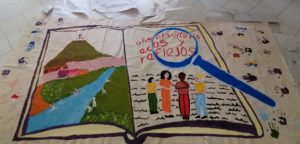
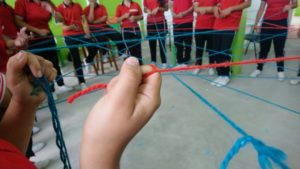
Photos : Archives COALICO - Oscar Fernando Cobo
Irreparable damage
The involvement of minors in armed groups through use and recruitment is not only a practice that violates human rights and international humanitarian law, but this experience within the armed group also represents for children the continuous and simultaneous violation of all their rights such as the right to life, physical integrity, sexual integrity, personal freedom, education, or to have a family and not to be separated from it. Children involved in war are killed or maimed, either as combatants or as members of affected communities. When they survive, they face highly damaging and long-lasting psychological consequences. Children are also victims of sexual assault. In general, statistics show that girls are more likely to be sexually assaulted than boys. However, it should be remembered that the reporting rate of child rape is very low because of the stigma attached to it, especially in patriarchal structures.
The process of social reintegration of children presents significant challenges, as they lose their links to their families and communities when they join armed groups. Children run the risk of being stigmatised and marginalised by their communities and families, losing the opportunity to attend school and develop intellectually. In many cases, given the lack of opportunities and vocational training, they are forced to pursue delinquency. In addition, the vast majority of demobilised minors suffer from post-traumatic stress disorder, which can affect them for the rest of their lives. In short, the armed conflict prevents them from living the most important stage of their lives, which seriously affects their identity, their emotions, their way of relating to others and of understanding the world.
In these circumstances, it is important that the different sectors of civil society, governmental and international, support initiatives that promote projects aimed at preventing the use and recruitment of minors by armed groups. It is also important to implement joint actions for the care of child victims of this crime. These efforts must be translated into the guarantee and effective enjoyment of their rights, always with the conviction that they deserve to be born and grow up in an environment of peace, in which they are guaranteed the right to education, but also to belong to a family, to the love of their parents, to access to health services, to leisure and, in general, to the possibility of developing all their potential, in conditions of equality and without discrimination.
Interested by international volunteering?
Find out more about our open mandates
KEEP ME INFORMED OF UPCOMING VOLUNTEERING OPPORTUNITIES

Volunteer cooperation program funded by Global Affairs Canada.






